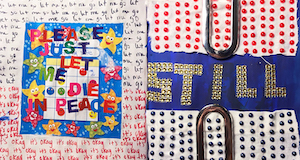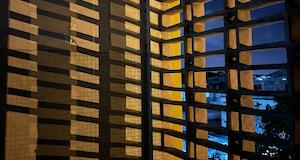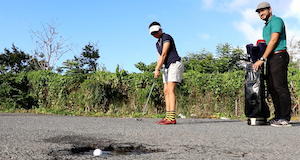International Open Call 2022-23 Proposal Results
INTL 2022 Jurors
INTL 2022 Ranking
Open Calls Info The four highest ranking proposals were submitted by: Sam Fein (The Corrections), Sol Kim (Memory Card: The Perk of Being Able to Remember), Onyịnye Alheri and Carolina Policarpo (Sem Sombras/Unshadowed), and Mariana Ramos Ortiz (I saw the future, it’s so wonderful, there are Puerto Ricans (Vi el futuro, es maravilloso, hay puertorriqueñxs)).
The International Open Call accepts ideas for group exhibitions to be presented in their respective proposed cities around the world. The organizers of the four highest-ranked proposals will receive curatorial honorariums, funding for their exhibitions, and funding for exhibition-related public programming. See above for a ranking of all submitted proposals in order of highest total score. Proposals with the same total score share place positions and are ranked with the same number.

The Corrections
submitted by: Sam Fein
May 20 - June 17, 2023
in Canton, MA, United States
Artworks created by survivors-turned-activists reveal the “Troubled Teen Industry,” a multi-billion dollar industry designed to modify socially-undesirable behaviors in adolescent girls.

Memory Card: The Perk of Being Able to Remember
submitted by: Sol Kim
October 8 - November 12, 2022
in Paris, France
Considers the act of subjective human recollection as a sacred activity, in a time when technology’s “memory” threatens to make our own remembering obsolete.

Sem Sombras/Unshadowed
submitted by: Onyịnye Alheri and Carolina Policarpo
February 25 - March 25, 2023
in Maputo, Mozambique
Highlights the ways that queer and trans Mozambicans and other Africans are undoing enforced social norms and demanding rights, pleasure, and freedom.

I saw the future, it’s so wonderful, there are Puerto Ricans (Vi el futuro, es maravilloso, hay puertorriqueñxs)
submitted by: Mariana Ramos Ortiz
July 1 - July 30, 2023
in San Juan, Puerto Rico
Counters narratives that suggest Puerto Ricans are the root of the archipelago’s problem by presenting works that consider new strategies for colonial subjects to reclaim agency over their past, present and future.

